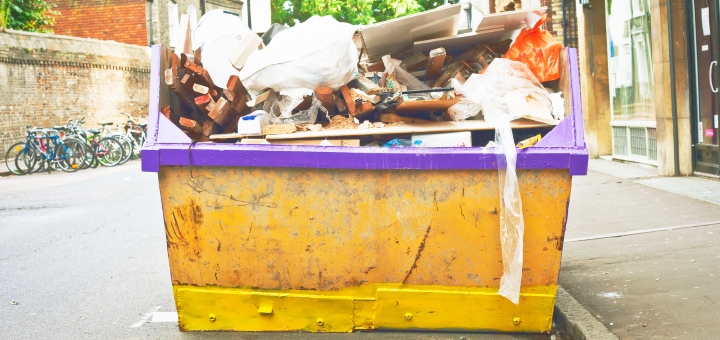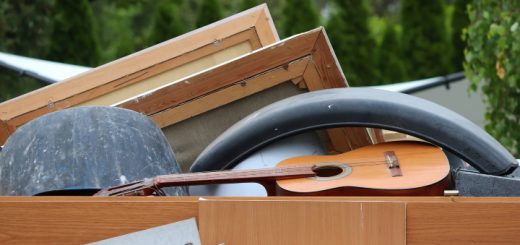A guide to skip hire: dos, don’ts, sizes, permits and costs

Skip hire is one of the most popular waste removal solutions in the UK, and is often used by both commercial and domestic consumers. Skips are an affordable and easy way to throw away your waste as you produce it, and are suitable for most types of waste.
How much does a skip cost?
The cost of hiring a skip often varies, depending on the size and type of skip you want to hire. Smaller skips, known as mini skips, are the cheapest, with prices starting as low as £70. Larger skips, such as the 8-yard skip, are more expensive at £200, but hold considerably more waste.
Your location can also influence the cost of skip hire, with the highest prices normally found in London and the surrounding counties. In areas with several skip providers, healthy competition to secure your business can mean that consumers often get a great deal on their hire.
When considering the cost of a skip, it is important to remember that a council-issued skip hire permit may be required, which will increase the total cost of your skip hire.
What skip size do I need?
The skip size that you will require is dependent on the amount of waste you will produce. Skips are available in a number of different sizes, to suit any job. If you will only be producing a small amount of waste, a mini skip will likely be sufficient, and can hold the waste from a small garden clearance or bathroom refit.
For bigger jobs, you may need a builder’s skip, which are available in 6 to 8 yard sizes and hold 65 to 80 black bin bags of waste. These skips are perfect when more extensive work is being carried out, or if you will need to dispose of the waste from multiple smaller jobs, such as a bathroom and kitchen refit.
Industrial-sized jobs often produce a considerable amount of waste, and require a roll-on roll-off skip. These skips are extremely large, and are available in sizes from 20 to 40 yards.
If you are leaving your skip in a publicly accessible area, you may want to consider a lockable skip. Lockable skips are available in a range of different sizes, ensure that your waste is kept secure, and prevent unwanted and potentially prohibited items from being added to your skip.
What can and can’t you put into a skip?
Skips can be used for most types of waste, but there are some exceptions. Common items permitted in a skip include:
- Bricks and rubble
- Metal
- Plastic
- Wood
- Soil and organic waste
- Domestic rubbish
- Furniture
- Cardboard.
Items that are not allowed in a skip include:
- Hazardous materials (such as explosives and asbestos)
- Medical waste
- Chemicals
- Fluorescent bulbs
- Electricals
- Tyres
- Compressed gas cylinders
- Plasterboard (plasterboard cannot be mixed with other waste, so a plasterboard bag will normally be provided, if required).
If you have any doubts about your waste, it is recommended you speak to your skip hire provider.
Will I need a skip hire permit?
You will require a skip hire permit if you plan to place a skip on council land, such as a road, but a permit will not be required if the skip is placed on privately-owned land.
Skip permits are issued by your local council, and in most circumstances will be arranged by your skip provider. Skip permits often cost between £15 to upwards of £60, so placing the skip in your drive or on your property can help keep the hire costs down.










Good in depth article on skip hire, very useful